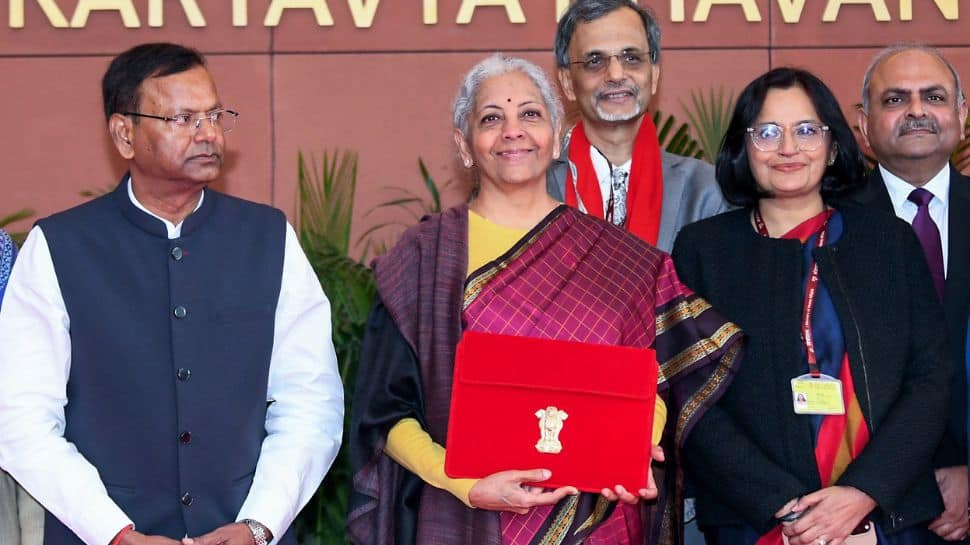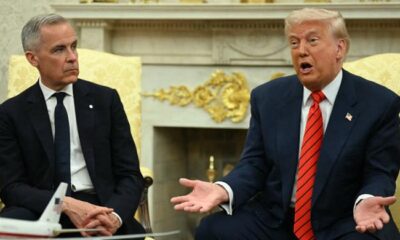Business
Portal closure, import policy blamed for sugar price hike | The Express Tribune

PSMA warns supply disruption, cash flow crisis caused by preferential treatment for imported sugar
LAHORE:
A special meeting of the Sugar Advisory Board was held under the co-chairmanship of Deputy Prime Minister Ishaq Dar and Federal Minister for National Food Security Rana Tanveer Hussain to review the sugar market situation, imported sugar stocks, and the closure of the S-Track portal. The deputy prime minister attended via Zoom, while the federal minister joined from the Lahore office of the Pakistan Sugar Mills Association (PSMA).
According to a statement issued by the PSMA, the sugar industry made it clear that the government’s policy of prioritising the sale of imported sugar and closing the Federal Board of Revenue (FBR) portals for local sugar sales has triggered the recent price surge and supply shortage in the market.
Industry representatives said that for the past three weeks, mills across the country have been unable to supply sugar due to the closure of these portals, creating severe cash flow problems and repayment issues on bank loans.
They informed the meeting that the industry had repeatedly warned the government against importing unnecessary sugar but about 300,000 tonnes was still imported. Now, the government is struggling to offload imported sugar, and as a result, the sales portals for local sugar have been blocked.
The industry also told the minister that the PSMA had been cautioning authorities for weeks through letters and press releases that keeping the portals closed would lead to shortages and price hikes. However, these warnings were ignored. Representatives emphasised that the domestic sugar industry was not responsible for the price increase and that dealers and profiteers were the main beneficiaries.
They said the government’s decision to prioritise imported sugar had sidelined the domestic industry and disrupted the supply of better-quality local sugar. As a result, sugar had become both costlier and scarce in several areas of the country.
During the meeting, officials discussed various options for the purchase and distribution of imported sugar by local mills. The federal minister listened to the industry’s concerns and assured that immediate steps would be taken to resolve the issues related to portal closures and ensure smooth supply of sugar to the market.
Last week, the National Assembly Standing Committee on Commerce called for strict accountability over controversial sugar export decisions. Chairman Muhammad Jawed Hanif Khan said repeated policy lapses demanded a detailed inquiry into those responsible. The committee formed a Sub-Committee to investigate the issue and directed the Competition Commission of Pakistan to explain its failure to curb cartelisation. It also recommended deregulation of the sugar sector and restructuring of the Sugar Advisory Board to enhance transparency.
Business
Budget 2026: Cabinet gives green signal to Union Budget 2026–27

New Delhi: The Cabinet on Sunday approved the Union Budget 2026-27 during a meeting in Parliament chaired by Prime Minister Narendra Modi. A meeting of the Union Cabinet was held at Sansad Bhawan at 10 a.m., and after the Cabinet’s approval, Finance Minister Nirmala Sitharaman proceeded to Parliament to present the Budget.
Earlier, FM Sitharaman met President Droupadi Murmu and offered her a copy of the digital budget. The President also offered ‘dahi-cheeni’ (curd and sugar) to Sitharaman when she arrived at the Rashtrapati Bhavan. The Finance Minister was seen carrying her trademark ‘bahi-khata’, a tablet wrapped in a red-coloured cloth bearing a golden-coloured national emblem on it.
Minister of State for Finance Pankaj Chaudhary, Chief Economic Advisor Dr V. Anantha Nageswaran, Central Board of Direct Taxes (CBDT) Chairman Ravi Agrawal and other officials were seen accompanying the Finance Minister. Sitharaman was set to present her ninth consecutive Union Budget in the Lok Sabha. In 2021, she switched to using a digital tablet to carry the Budget papers, further promoting a modern and eco-friendly approach.
The ‘bahi-khata’ is a red pouch that holds the digital tablet containing the Budget documents. This year, Sitharaman opted for a deep maroon Kanjeevaram saree from Tamil Nadu. The saree featured a deep maroon base with a contrasting border and subtle gold detailing, paired with a yellow blouse.
The Budget is likely to strike a deft balance of sustaining growth momentum and maintaining fiscal consolidation. It also needs to address near-term challenges emanating from unprecedented geopolitical flux, said economists. According to economists, the budget is likely to focus more on capital expenditure, especially in sectors deemed to be strategically important owing to prevailing geopolitical compulsions.
While the FY26 Budget was more tilted towards stimulating middle-class consumption with tax reliefs, the FY27 Budget’s approach to stimulating consumption will be selective, they added.
Business
Education Budget 2026 Live Updates: What Will The Education Sector Get From FM Nirmala Sitharaman?

Union Education Budget 2026 Live Updates: Union Finance Minister Nirmala Sitharaman will present the Union Budget 2026–27 on February 1, with a strong focus expected on the Education Budget 2026, a key area of interest for students, teachers, and institutions across the country.
In the previous budget, the Bharatiya Janata Party government announced plans to add 75,000 medical seats over five years and strengthen infrastructure at IITs established after 2014. For 2025, the Centre had earmarked Rs 1,28,650.05 crore for education, a 6.65 percent rise compared to the previous year.
Meanwhile, the Economic Survey 2025–26, tabled in the Parliament of India, points to persistent challenges in school education. While enrolment at the school level is close to universal, this has not translated into consistent learning outcomes, especially beyond elementary classes. The net enrolment rate drops sharply at the secondary level, standing at just over 52 per cent.
The survey also flags concerns over student retention after Class 8, particularly in rural areas. It notes an uneven spread of schools, with a majority offering only foundational and preparatory education, while far fewer institutions provide secondary-level schooling. This gap, the survey suggests, is a key reason behind low enrolment in higher classes.
Stay tuned to this LIVE blog for all the latest updates on the Education Budget 2026 LIVE.
Business
LPG Rates Increased After OGRA Decision – SUCH TV

The Oil and Gas Regulatory Authority (Ogra) has increased the price of liquefied petroleum gas (LPG). According to a notification, the price of LPG has risen by Rs6.37 per kilogram. Following the increase, the price of a domestic LPG cylinder has gone up by Rs75.21. The revised prices have come into effect immediately.
The rise in LPG prices has added to the inflationary burden on household consumers.
-

 Business1 week ago
Business1 week agoSuccess Story: This IITian Failed 17 Times Before Building A ₹40,000 Crore Giant
-

 Fashion1 week ago
Fashion1 week agoSouth Korea tilts sourcing towards China as apparel imports shift
-

 Sports1 week ago
Sports1 week agoTransfer rumors, news: Saudi league eyes Salah, Vinícius Jr. plus 50 more
-

 Sports5 days ago
Sports5 days agoPSL 11: Local players’ category renewals unveiled ahead of auction
-

 Entertainment1 week ago
Entertainment1 week agoThree dead after suicide blast targets peace committee leader’s home in DI Khan
-

 Sports1 week ago
Sports1 week agoWanted Olympian-turned-fugitive Ryan Wedding in custody, sources say
-

 Politics1 week ago
Politics1 week agoTrump revokes Canada’s invitation to join Board of Peace
-

 Fashion1 week ago
Fashion1 week agoTamil Nadu wind policy tweaks to boost textile sector competitiveness











